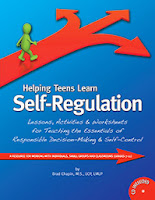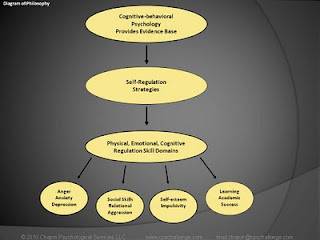The teenage years present unique challenges for self-regulation. There are major physiological changes occurring, a capacity for more complex emotions and relationships, increased pressures, the task of establishing our identity and working toward independence just to name a few.
Given the significant impact of the Self-Regulation Training System (SRTS) with elementary-age children, it was a natural next step to reach out to teenagers. Research indicates that self-regulation skills predict academic success, healthy social relationships, wellness, happiness, the absence of mental health issues, and college success. Those who regulate well are generally more pro-active in their approach to life, while those who regulate poorly are generally more reactive.
Brad Chapin, best-selling author of "Helping Young People Learn Self-Regulation," recently released the highly anticipated strategy guide for helping teens learn these skills that are so critical for success. Consistent with the SRTS, self-regulation skills are broken into three areas:
- Physical - Recognizing physical warning signs to upset and learning to get calm and safe
- Emotional - Accurately identifying feelings; learning to express them in healthy ways; understanding that we are in control of our own feelings and that nothing/nobody can make you feel a certain way
- Cognitive - Learning to identify and challenge unhealthy/extreme thinking; learning to get our needs met in healthy ways; basic problem-solving and planning
For more information on the Self-Regulation Training System, visit www.selfregulationtraining.com






